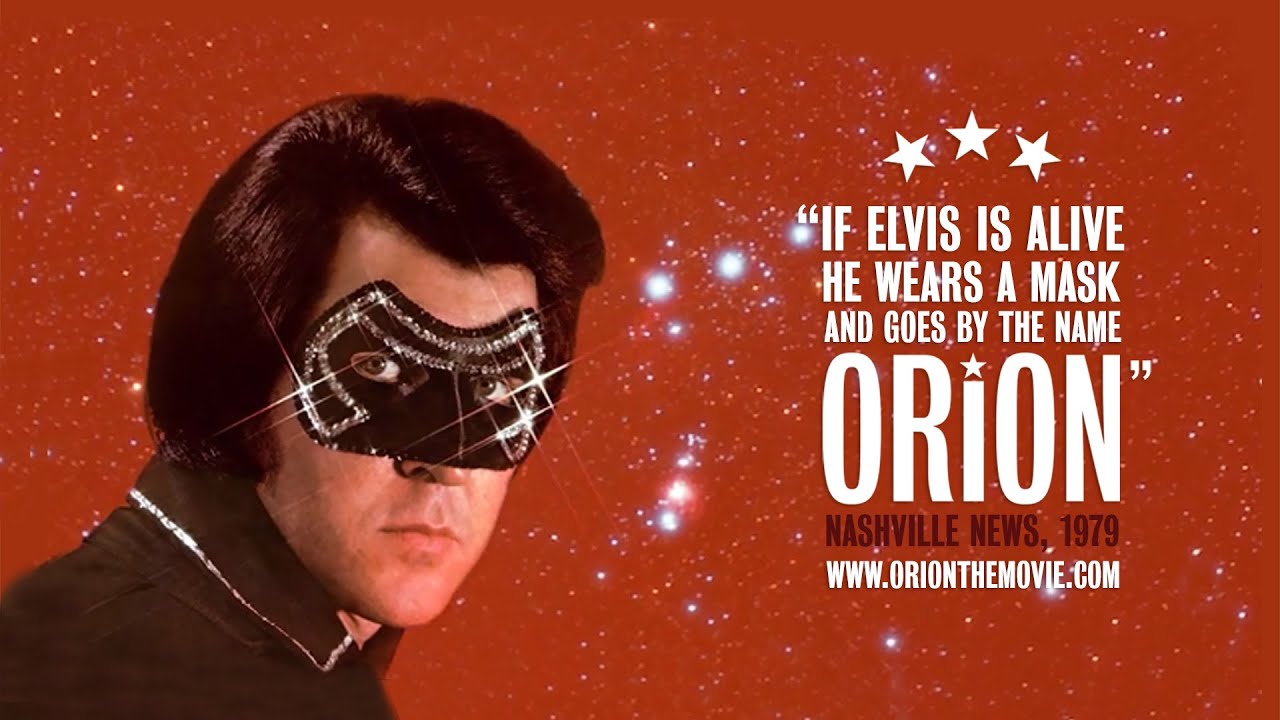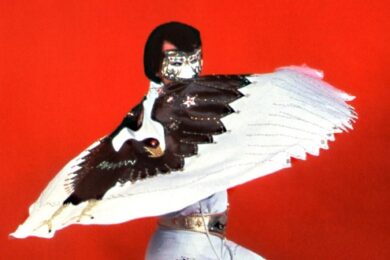“If Elvis is alive, he wears a mask & goes by the name ORION.”
Or so people desperately wanted to believe. When Elvis Presley died in 1977 the people’s pain was palpable, and some fans would have put their faith in anything that would bring their idol back again. When Orion ‘appeared’ in 1979, with a voice identical to Elvis, dressed identical to Elvis, but wearing a mask, fans believed, and the myth that Elvis had faked his own death abounded.
Jimmy Ellis was born out of wedlock and given up for adoption at two years old, but was not adopted by the Ellis family until he was five. Little is known about what went on during those three years in foster homes and boarding houses – and what is known is not pleasant. The Ellis’ however loved him and treated him well and he spent his youth growing up on the farming and cotton lands of Orville, Alabama. However a need to sing and play music grew in him at a young age and he spent the next 20 years pursuing that dream. Part of this dream meant abandoning his entire identity and becoming Orion, much to the benefit of Shelby Singleton, the owner of Sun Records from 1969.
Director Jeanie Finlay’s documentary, Orion: The Man Who Would Be King, chases this fascinating myth but ends up creating a film which amounts to much more than just the story of one man’s rise and fall. It is a perceptive insight into the music industry of the day – while it was at its imperial plateau – and about how it fed on the need for people to believe in such wild dreams, no matter what the cost to the musicians involved. This is also a film of layers created upon layers created upon layers. Each person interviewed has a different story to tell, a different take on Orion (or indeed, Jimmy Ellis). His need for validation either through performance, alcohol, or women, is documented forensically, and yet he is still far from an unlikeable character.
Finlay is determined to show all the people in the film in a realistic light. Showcasing the good, the bad, and all that lies in between. This is what keeps the film from drifting off on unnecessary tangents. One of her strengths as a director is paying close attention to characters that many others would immediately cast aside, seeing beyond their ‘ordinariness’ and bringing out the extraordinary in them. And every single person has ‘a reveal’ of one kind or another. From the claims by Shelby Singleton that he came up with the Orion character, to the stories from Ellis’ many girlfriends and female fans. (One of these interviews is the basis of one of the strangest exchanges in a music documentary ever, concerning a suitcase full of photos of "Lucies"…) There is a humour that runs throughout, but it’s at no one’s expense. The people interviewed are as multi layered and complex as Jimmy himself.
This is a melancholy story, but an intriguing one – and even for the minority who actually remember Orion, the short lived music sensation in the US at the tail-end of the 70s, Finlay has managed to dig up some incredible new information on the whole unlikely but true story.
You may walk away from the film with a slightly heavier heart knowing the full story and you may fume at the way Jimmy was exploited by Sun Records (not to mention the fact that he received no royalties for any of his work) but you will be very glad that Finlay told his story. As Jimmy himself said:
“I realised [looking at the crowd], watching everyone clapping for me, that they weren’t clapping for me, they were clapping for a ghost.”
Jimmy tried to live as artist in his own right, but with a voice just like Elvis, that colossal ghost would haunt him for the rest of his life.




